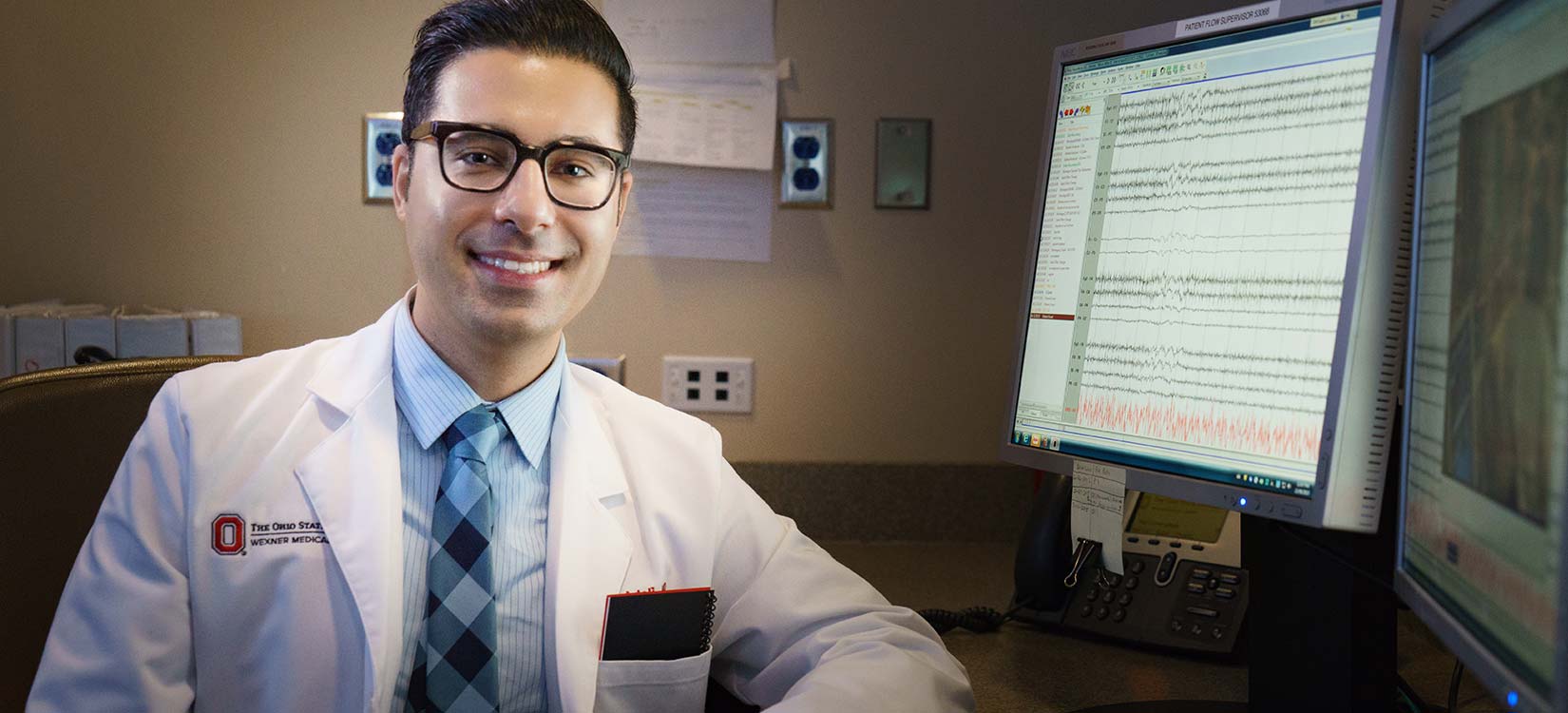Epilepsy physician searches for seizure signals in EEG data with help from algorithms
 The great challenge of epilepsy is the prediction of seizures. If people with epilepsy could foresee their own seizures, they could possibly forestall them with medication, or forego potentially dangerous activities like swimming or driving. Amir Adeli, MD, a neurologist in Ohio State's Comprehensive Epilepsy Center, is working to tackle the notoriously difficult task of predicting seizure onset, with a little help from family.
The great challenge of epilepsy is the prediction of seizures. If people with epilepsy could foresee their own seizures, they could possibly forestall them with medication, or forego potentially dangerous activities like swimming or driving. Amir Adeli, MD, a neurologist in Ohio State's Comprehensive Epilepsy Center, is working to tackle the notoriously difficult task of predicting seizure onset, with a little help from family.
Dr. Adeli regularly teams up with his father, Hojjat Adeli, PhD, a professor at Ohio State, to research their joint interest in identifying patterns that can be teased out of electroencephalographic (EEG) recordings. EEG data, captured with electrodes attached to the skull, pick up electrical activity from underlying brain structures.
"There may be a more sophisticated way to look at these data that cannot be identified by the standard visual inspection of an electroencephalogram," says Dr. Adeli. "We're interested in going beyond the surface of what the eye can see, using computational algorithms to uncover patterns of electrographic activity that may be unique to particular neurologic and psychiatric disorders."
Neurology is the Adeli family business. After completing his medical degree at Northeast Ohio Medical University, Dr. Adeli came to Ohio State for a neurology residency and a one-year epilepsy fellowship. Dr. Adeli now splits his time between the Comprehensive Epilepsy Center's clinic, the Epilepsy Monitoring Unit and his lab research. Dr. Adeli's father is an Ohio State professor with appointments in four departments, and his mother is a neurologist in private practice.

